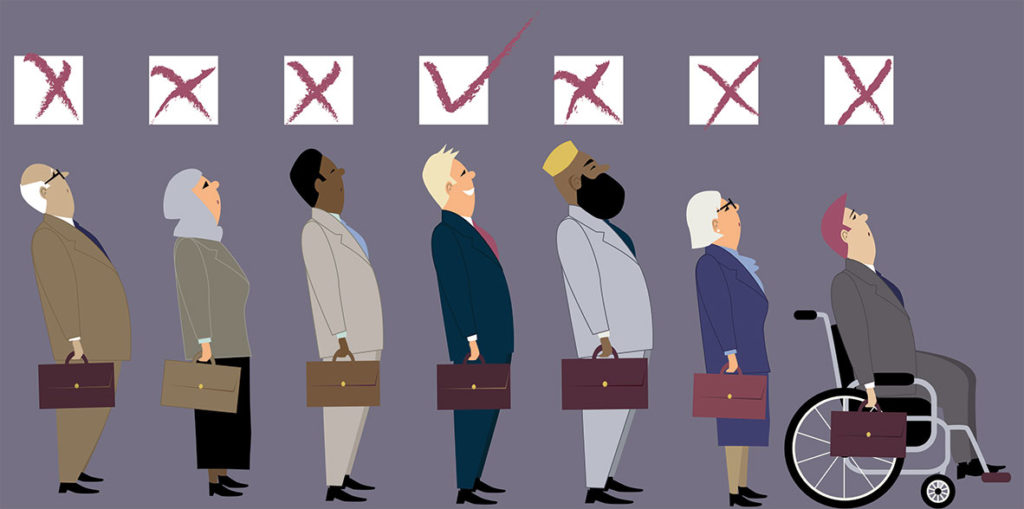PROVING RELIGIOUS DISCRIMINATION IN THE WORKPLACE
 Religious discrimination is treating someone differently because of that person’s identification with a set of beliefs in general and a particular religion in particular.
Religious discrimination is treating someone differently because of that person’s identification with a set of beliefs in general and a particular religion in particular.
Individuals may be treated unequally because of their religion or religious denomination, or even the lack of identification with a prevailing religion. Religious discrimination can arise in many different environments, but the legal profession sees the most cases in housing and workplace settings.
Proving Religious Discrimination
The United States enshrines in the U.S. Constitution the freedom of religion. Nonetheless, some workplaces feature a hostility towards religious minorities.
Since the 1970s, the United States Commission of Civil Rights has defined religious discrimination with reference to the 14th amendment rather than the first amendment per se. The 14th amendment safeguards equal protection under the law for religious minorities, although the 14th amendment was originally ratified with slavery in mind.
Today, the Equal Employment Opportunity Commission (EEOC) defines religious beliefs as theistic beliefs about God or, alternatively, moral beliefs regarding right and wrong that have the same fervor and impact as theistic beliefs about God. Ultimate ideas about “life, liberty, and death” are said to be core facets of religious beliefs by the EEOC.
Taunting That Creates A Hostile Work Environment
The EEOC says that these beliefs can be infringed in a number of different instances. Harassment based on an individual’s religious beliefs by a supervisor, co-worker, or contractor working for the company can all potentially be considered religious discrimination in the workplace.
One-off comments that are insensitive towards someone’s religion may not, in themselves, constitute workplace harassment. Repeated, severe, and frequent harassment that creates a hostile workplace environment could constitute religious discrimination.
If you feel you’ve been the victim of this kind of religious discrimination, then consider hiring a Religious Discrimination Lawyer or a Los Angeles Employment Lawyer to review your case. A religious discrimination attorney can tell you what rights you have and whether those rights may have been infringed.
Hiring, Firing, And Promotion
The laws surrounding religious discrimination in the workplace go far beyond severe taunting that fosters a hostile, offensive workplace environment. Hiring, firing, and promotion decisions that were impacted by religious discrimination are illegal.
Failure to Accommodate
Religious discrimination in the workplace cases have also revolved around a failure to provide religious accommodations. Forcing an employee to work on Sabbath or remove a hijab could be grounds for a religious discrimination case.
